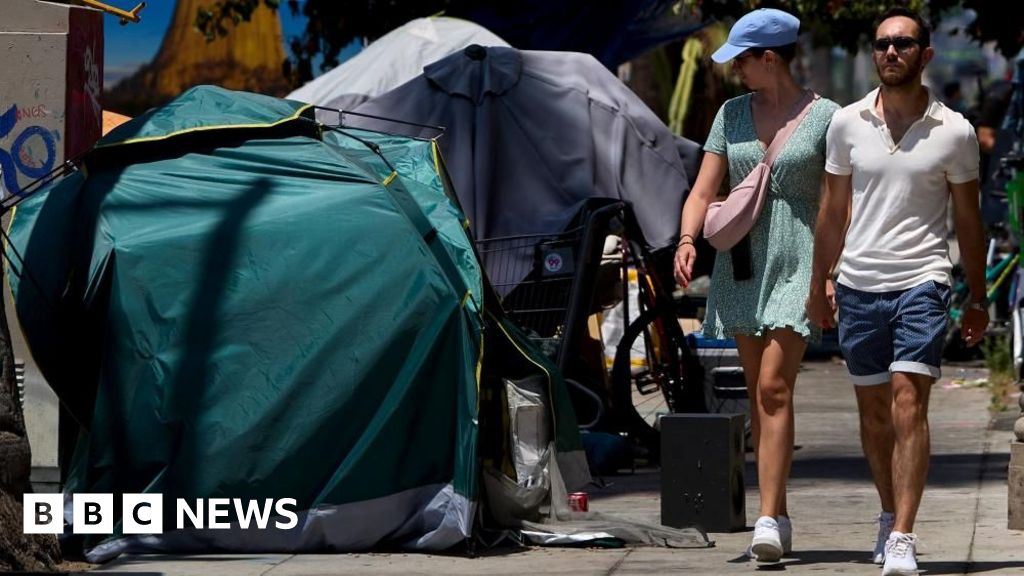The high court’s ruling is already having a ripple effect on cities across the country, which have been emboldened to take harsher measures to clear out homeless camps that have grown in the aftermath of the pandemic.
Many US cities have been wrestling with how to combat the growing crisis. The issue has been at the heart of recent election cycles on the West Coast, where officials have poured record amounts of money into creating shelters and building affordable housing.
Leaders face mounting pressure as long-term solutions - from housing and shelters to voluntary treatment services and eviction help - take time.
“It’s not easy and it will take a time to put into place solutions that work, so there’s a little bit of political theatre going on here," Scout Katovich, an attorney who focuses on these issues for the American Civil Liberties Union (ACLU), told the BBC.
"Politicians want to be able to say they’re doing something,”



Yeah they did that policy completely backwards. The Portugal experiment works, but you have to actually do what they did and Oregon did none of the follow up work the Portuguese did.
But you shouldn’t be punishing homeless people for that, at best it’s some sort of venn diagram and critics want to make it look like a circle.
Oregon’s problem was assuming the drug addicted want assistance. They don’t. All they wanted was clean needles.
Why is that a bad thing? Why is having the resources to help them available a bad thing, and clean needles to prevent things like AIDs from spreading a bad thing? Not having that isn’t going to stop them. Having that means the ones who do want help can get it.
He doesn’t like it.
Having the resources to help them is a good thing, it’s bad that they don’t want the help.
We set up a plan where getting caught with drugs got you a $100 ticket. The ticket was waived if you called a 1-800 helpline and asked about getting help.
Note - You didn’t ACTUALLY have to enter treatment, just calling the number was enough.
Of the 16,000 or so people ticketed, about 2/3rds of 1% called the number. They wiped their asses with the tickets.
We’re replacing that with a new plan that says “Get help or go to jail, pick one.” Kicks in I think in September?
To be honest going to jail isn’t a great thing though. That’s just creating more trauma that’s going to block any recovery. I agree it needs to be there at some point but this feels like we’ve just gone back to the war on drugs that didn’t work.
It’s the stick to get them to accept the carrot of treatment.
That’s the problem. They’re used to the stick. They’ll just bear it until they can escape reality again. It doesn’t help anyone, it just makes anti drug crusaders feel better.